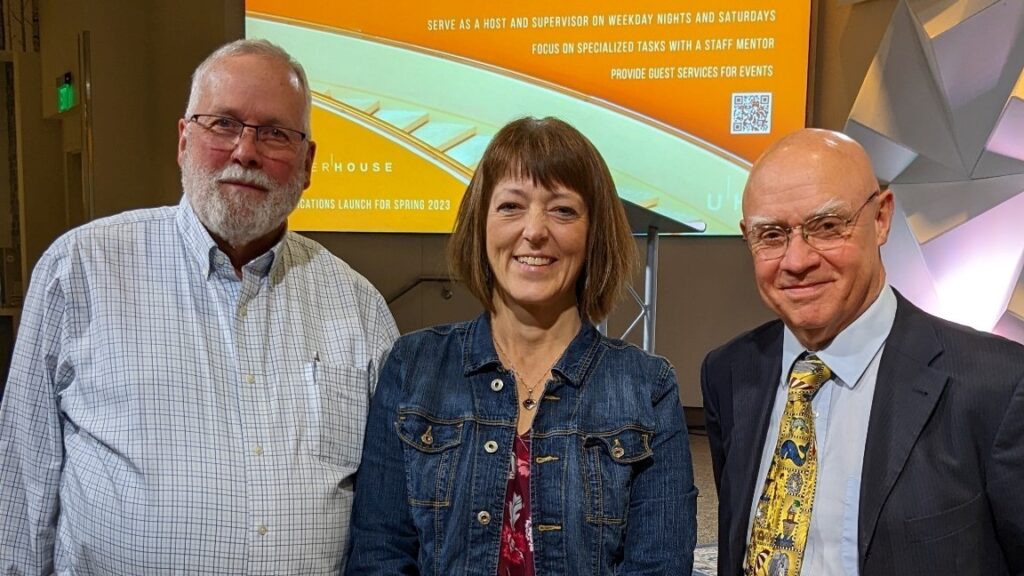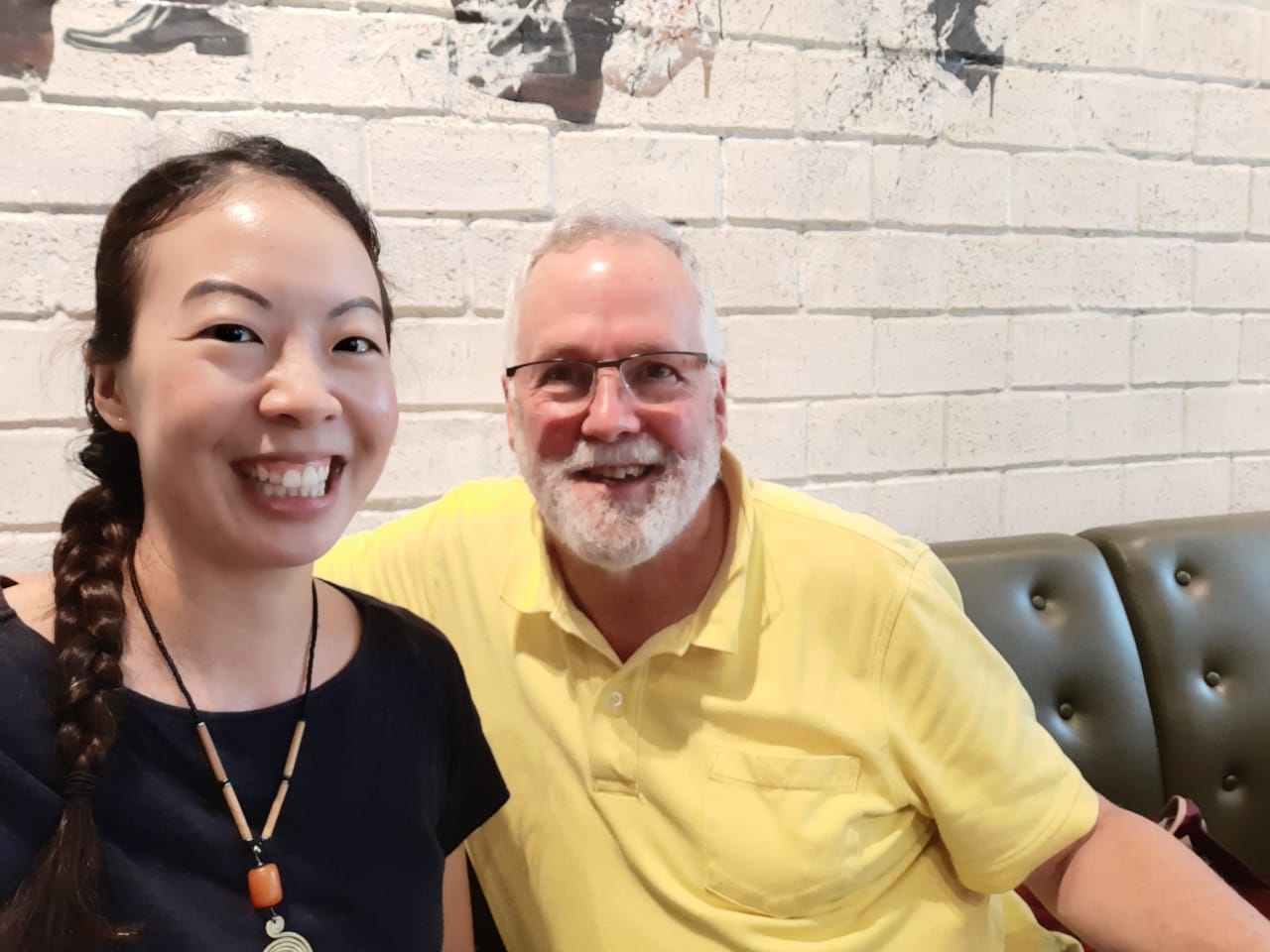On 20 March 2023, the United Nations’ Intergovernmental Panel on Climate Change (IPCC) released a report on the latest state of the created world.
The report is sobering: a continued increase in greenhouse emissions contributing to a dangerous rise in global temperatures, a 15-fold increase in deaths caused by ever-intensifying and more frequent natural disasters, and widespread climate-driven food and water insecurity. And amidst these dire statements, one common theme stands out: the report’s utter concern for the poor and the most vulnerable, who bear the brunt of climate change’s devastating consequences.
This latest report confirms the worst, but it also gives room for hope if we act now, act together, and act fast.
Such dire realities can leave many feeling despondent. But Christian leaders at the forefront of creation care are responding to the report with an urgent hopefulness. ‘This latest report confirms the worst, but it also gives room for hope if we act now, act together, and act fast,’ says Dave Bookless, a Lausanne catalyst for creation care since 2018 and the director of theology for A Rocha International, which coordinates the largest global network of Christian creation care organizations.
‘Whether or not we act will affect the lives of millions of people and the flourishing of God’s creation.’
How Creation Care Became a Gospel Issue
The evangelical church has not always supported what is now called ‘creation care’. One of the key moments for this now-global movement was the Third Lausanne Congress on World Evangelization (Cape Town 2010), where the global evangelical church first embraced creation care as a gospel issue.
In the years leading up to the congress, Ed Brown was leading an organization called Care of Creation, which aimed to mobilize the church toward caring for God’s created world. It was an often lonely enterprise, and Brown remembers someone remarking to him once, ‘A Christian environmentalist? Is there such a thing?’
The global evangelical church first embraced creation care as a gospel issue at the Third Lausanne Congress.
‘Around 2007–8, I started picking up rumors that this big Lausanne gathering was happening,’ Brown recalls. ‘We had to be sure that creation care somehow got on the agenda. And so I started working behind the scenes with individual leaders who were interested in the topic. But I wasn’t really a part of Lausanne at the time—I was infiltrating,’ he says with a laugh.
Through an unexpected connection with Doug Birdsall, then leading Lausanne, Brown received a late invitation to attend Cape Town 2010, where creation care was given a slot as a multiplex session.
‘What was important for the larger movement was not so much what was said, but just that it was there,’ says Brown. ‘That much program space had never been given before to creation care.”
The most important thing that came out of Cape Town 2010 for the budding evangelical creation care movement was The Cape Town Commitment and its section on creation care, which states:
We care for the earth, most simply, because it belongs to the one whom we call Lord.
[. . .] We cannot claim to love God while abusing what belongs to Christ by right of creation, redemption and inheritance. [. . .] For to proclaim the gospel that says ‘Jesus is Lord’ is to proclaim the gospel that includes the earth, since Christ’s Lordship is over all creation. Creation care is thus a gospel issue within the Lordship of Christ.
Such love for God’s creation demands that we repent of our part in the destruction, waste and pollution of the earth’s resources and our collusion in the toxic idolatry of consumerism. Instead, we commit ourselves to urgent and prophetic ecological responsibility. We care for the earth, most simply, because it belongs to the one whom we call Lord.
The important phrase here, Brown points out, is ‘creation care is a gospel issue’.
‘This had never been said before. It was the global evangelical church saying to itself, we are the people of the gospel and we believe that creation care is a part of that gospel.’
In November 2012, the Jamaica Consultation on Creation Care and the Gospel continued the conversation that had begun in Cape Town. The key organisers included Ed Brown and Dave Bookless as well as Ken Gnanakan, Paul Cook, and Las Newman, who hosted the gathering in Jamaica and provided a link to Lausanne’s senior leadership as the regional director for the Caribbean.
Over five days, fifty to sixty people collaboratively wrote The Jamaica Call to Action, which calls the global church to radically and faithfully care for God’s creation. The Call includes action points like committing to a simple lifestyle, raising up leaders in the Global South church, environmental missions among unreached people groups, sustainable principles in food production, and prophetic advocacy.
‘This was an important message to spread around the world,’ says Brown. ‘And we were determined the Call to Action would not die a dusty death. We would keep it alive.’
A Global Movement and What Happens Next
Over the next ten years, Lausanne’s creation care network, led by Brown, Bookless, and regional organizing committees, convened 12 conferences in every region of the world, gathering together local creation care advocates, pastors and church leaders, and scientists.
The CTC and The Jamaica Call to Action provided a theological groundwork, helping people feel that we could make room for creation care and still retain our evangelical identity.
‘The CTC and The Jamaica Call to Action provided a theological groundwork, helping people feel that we could make room for creation care and still retain our evangelical identity,’ says Brown.
Over time, the network began to see the issue of creation care gradually become depoliticized. It was encouraging to see the global church coming together at each of these gatherings in a spirit of cooperation and unity. In 2015 the World Evangelical Alliance (WEA) joined the network, making the official name the Lausanne / WEA Creation Care Network (LWCCN).

Ed Brown (left) and Dave Bookless (right) with Tanya Van Horne, Lausanne’s director of collaboration.
Ed Brown’s 10-year term as a Lausanne catalyst for creation care has now concluded, but the movement he helped start is growing from strength to strength. Co-catalysts Dave Bookless (UK) and Jasmine Kwong (Philippines), along with WEA colleagues, continue to coordinate a now global movement, with a monthly newsletter going to 1,700 people across 100+ countries.
‘Ed’s big white beard conceals a sharp brain, a winsome sense of humor, and a huge heart full of love for Jesus, other people, and God’s world,’ says Bookless. ‘Working with Ed has taught me so much about stepping out in faith knowing God will provide, and that this mission is ultimately God’s, not ours.’
Now that the initial series of regional conferences is complete, with the final consultation held in the Middle East and North Africa region this past year, LWCCN is looking to the future.
The next stage of the global Christian movement to care for God’s creation will look different from what’s gone before.
‘The next stage of the global Christian movement to care for God’s creation will look different from what’s gone before,’ says Bookless.
From regional conferences, LWCCN is now moving to multiple local and national initiatives, collaboration with an increasing network of Christian organizations, and to a series of global webinars to inform and resource Christians. And the movement today is now more culturally diverse, younger, and very vibrant.
One of the exciting things happening is the formation of creation care policies and strategies within a number of mainline evangelical mission organizations.
Jasmine Kwong, co-catalyst for creation care and also a missionary with OMF International, is currently helping to facilitate a growing network of mission agencies known as Mission Agencies & Creation Care (MACC). MACC believes caring together for creation is one expression of sharing and living out the gospel, so that people can know the Creator who can transform all of life.
‘Currently, we have representatives from more than 10 mission agencies who gather monthly to discuss and pray together,’ says Kwong.

Jasmine Kwong and Ed Brown
Today in nearly every country of the world, there are evangelical leaders who understand the biblical call to care for God’s world and who are seeking to work strategically to influence churches, missions and transform their nations. But the challenges before us as humanity are huge.
‘Within Lausanne, we must ensure that the Lausanne 4 process and the Fourth Congress hear the voices of young people, indigenous communities, scientists, and the victims of environmental disasters and changes,’ says Bookless.
Creation care is not only the context for missions in the 21st century. If we truly believe creation care is a gospel issue, then this is also the content of our mission.
‘Creation care is not only the context for missions in the 21st century. If we truly believe creation care is a gospel issue, then this is also the content of our mission. Making disciples of all nations must include every Christian and each organization seeing creation care as integral to following Jesus Christ as Lord.’
Bookless concludes by pointing to A Rocha’s statement on the IPCC report: ‘Our efforts are inadequate, but God’s love and faithfulness for all he has made enables us to remain hopeful that the story is not over.’
Learn More
- 1-minute video and a Twitter summary of the IPCC report by Katharine Hayhoe, WEA Climate Ambassador
- Statement in response to the IPCC report by A Rocha International
- Lausanne resources for creation care by the LWCCN
- The Jamaica Call to Action


